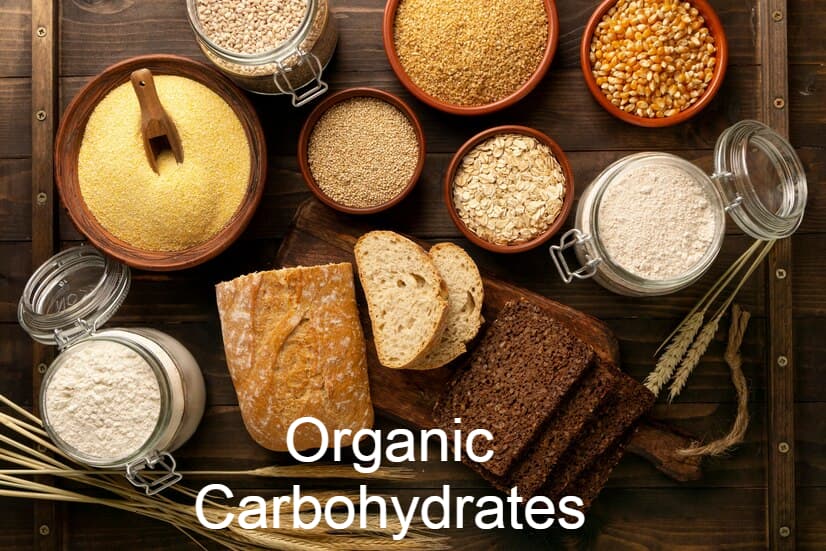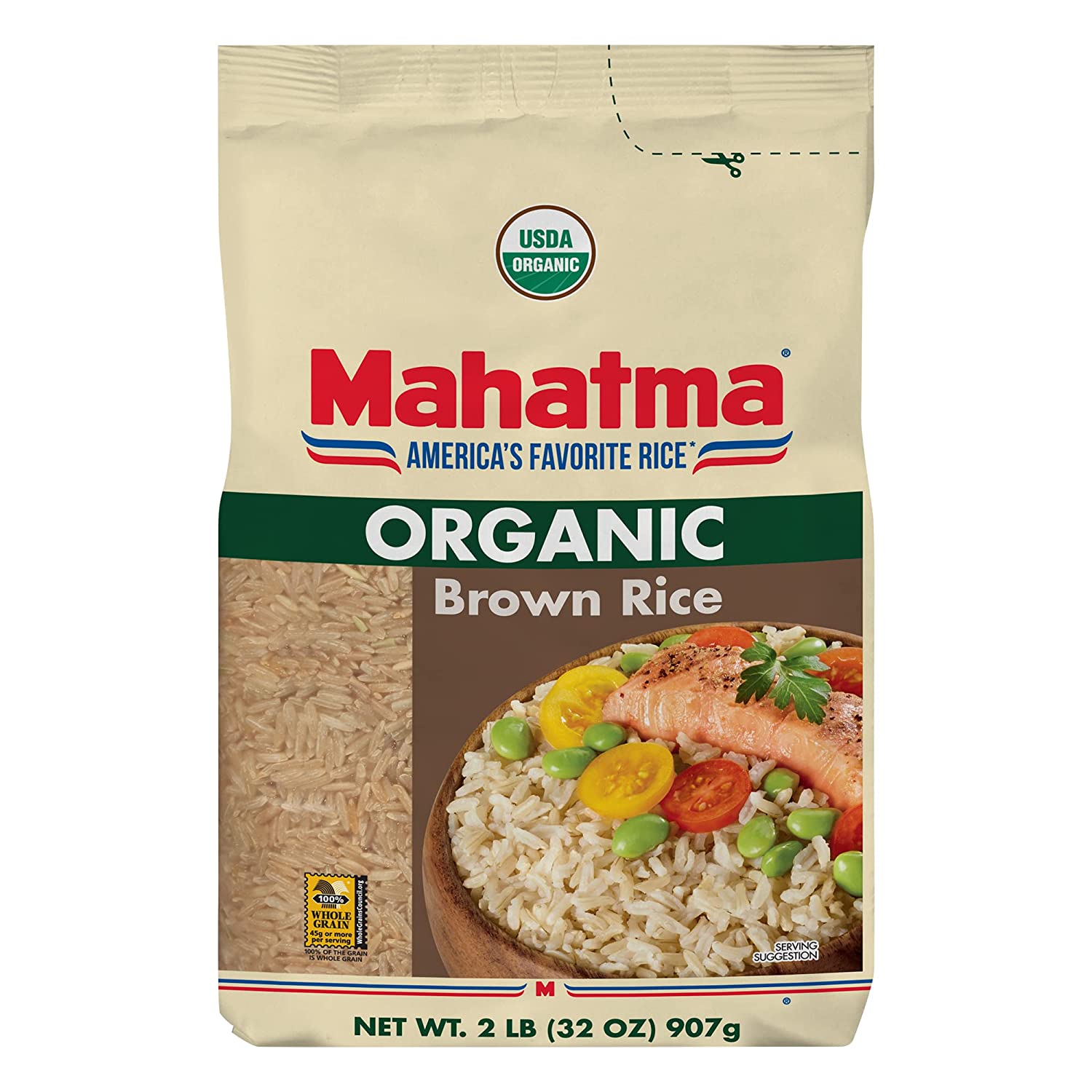Organic Carbohydrates

Carbohydrates play a crucial role in our diet, providing us with the energy needed for daily activities. However, not all carbohydrates are created equal. In this article, we will delve into the world of organic carbohydrates and explore their incredible benefits. From understanding their nutritional value to discovering the best sources, we’ll uncover the power of organic carbohydrates and how they can nourish your body naturally.
| Fact | Description |
|---|---|
| Primary Energy Source | Organic carbohydrates serve as the primary fuel source for high-intensity exercise. |
| Fuel for Endurance | Adequate carbohydrate intake supports endurance by maintaining glycogen stores. |
| Performance Enhancement | Carbohydrates enhance performance by providing readily available glucose for energy. |
| Delayed Fatigue | Carbohydrate availability during exercise helps delay fatigue and maintain energy levels. |
| Post-Exercise Recovery | Carbohydrates aid in glycogen replenishment and muscle repair for efficient recovery. |
| Hydration Support | Carbohydrate-containing fluids aid in optimal hydration during exercise. |
The Basics of Organic Carbohydrates
To truly appreciate organic carbohydrates, it’s important to understand their definition and how they differ from processed ones. Organic carbohydrates are derived from natural sources without the use of synthetic chemicals or genetic modification. Unlike their processed counterparts, they retain their natural nutrients, fiber, and health-promoting properties.
Exploring the Nutritional Value of Organic Carbohydrates
Organic carbohydrates are rich in essential nutrients that support overall health and well-being. They provide a sustainable energy source, vitamins, minerals, and dietary fiber. By consuming organic carbohydrates, you nourish your body with the goodness it deserves, promoting optimal functioning and vitality.
The Role of Organic Carbohydrates in a Balanced Diet
Carbohydrates are a vital part of a balanced diet, serving as the primary energy source for our bodies. Organic carbohydrates, when consumed in moderation, contribute to sustained energy levels, enhanced brain function, and efficient metabolism. Understanding how to balance carbohydrate intake with other nutrients is crucial for maintaining a healthy and nourished body.

Top Sources of Organic Carbohydrates
- Whole Grains: Nature’s Nutrient Powerhouses a. Quinoa: A Complete Protein and Fiber Source b. Oats: Heart-Healthy Goodness
- Fruits and Vegetables: Nature’s Sweet and Fiber-Rich Treats a. Berries: Antioxidant-Rich Superfoods b. Leafy Greens: Packed with Vitamins and Minerals
The Benefits of Fiber-Rich Organic Carbohydrates
Organic carbohydrates, particularly those rich in fiber, offer numerous health benefits. They promote digestive health, prevent constipation, and support regular bowel movements. Additionally, fiber-rich organic carbohydrates help control blood sugar levels, reduce the risk of chronic diseases, and aid in weight management.
Organic Carbohydrates and Weight Management
Contrary to popular belief, organic carbohydrates can be an ally in weight management. They provide a sustained source of energy, promote satiety, and help regulate appetite. By incorporating organic carbohydrates into a balanced meal plan, you can achieve and maintain a healthy weight while enjoying the benefits of a well-rounded diet.
Debunking Common Myths about Organic Carbohydrates
There are several myths surrounding carbohydrates, including the belief that they solely contribute to weight gain or that all carbohydrates are unhealthy. In this section, we will debunk these misconceptions and shed light on the truth behind organic carbohydrates, allowing you to make informed dietary choices.
Tips for Incorporating Organic Carbohydrates into Your Diet

Integrating organic carbohydrates into your daily meals can be an exciting and delicious journey. We will provide practical tips on meal prepping with organic carbohydrates and offer suggestions for making healthy swaps in your favorite recipes. With these ideas, you can elevate your diet to new levels of nutrition and flavor.
Organic Carbohydrates and Sustainable Agriculture
Choosing organic carbohydrates not only benefits your health but also supports sustainable farming practices. By opting for organic options, you contribute to a healthier environment, promote biodiversity and protect ecosystems. Organic farming methods prioritize soil health, minimize chemical usage, and prioritize crop rotation, thus promoting long-term sustainability in agriculture.
The Potential Drawbacks of Organic Carbohydrates
While organic carbohydrates have numerous benefits, it’s essential to be aware of potential drawbacks as well. Some individuals may have allergies or sensitivities to specific organic carbohydrates, which can lead to adverse reactions. Additionally, overconsumption of organic carbohydrates, like any food group, can contribute to weight gain and other health issues. Moderation and individual awareness are key.
Organic Carbohydrates for Special Dietary Needs
Organic carbohydrates cater to various dietary needs, making them versatile and inclusive. Those following gluten-free diets can find organic alternatives that are safe and free from gluten. Furthermore, individuals adhering to vegan or plant-based diets can embrace organic carbohydrates as a nutritious and ethical source of sustenance.
The Future of Organic Carbohydrates
As the demand for organic and sustainable food grows, the future of organic carbohydrates looks promising. Ongoing research and innovation continue to expand our knowledge and offerings in this field. From improved farming practices to the development of new organic carbohydrate sources, the future holds exciting possibilities for nourishing our bodies while caring for the planet.
Meal Planning and Prepping with Organic Carbohydrates
Creating Balanced Meal Plans:
When it comes to incorporating organic carbohydrates into your diet, meal planning is key. Start by identifying a variety of organic carbohydrate sources such as whole grains, fruits, and vegetables that you enjoy. Consider their nutritional value and aim for a balanced combination of carbohydrates, proteins, and healthy fats in each meal. Incorporate whole grains like quinoa or oats as the base of your meals and pair them with protein-rich foods like legumes or lean meats. Add a generous portion of colorful fruits and vegetables to provide essential vitamins, minerals, and fiber. By planning your meals in advance, you can ensure that you have a well-rounded and nutritious selection of organic carbohydrates to enjoy throughout the week.
Meal Prepping for Convenience:
One of the challenges of maintaining a healthy diet is the lack of time and convenience. Meal prepping can help overcome this hurdle by preparing your meals in advance. Cook a batch of organic carbohydrates such as quinoa or brown rice and portion them into individual containers. Include a variety of cooked vegetables, roasted sweet potatoes, or salads to create balanced and satisfying meals. Store these prepped meals in the refrigerator or freezer, ready to be enjoyed whenever you need a quick and nutritious option. Having pre-prepared organic carbohydrates readily available saves time, ensures you make healthier choices, and reduces the likelihood of reaching for unhealthy alternatives when hunger strikes.
Making Healthy Swaps in Your Favorite Recipes

Substituting Refined Carbohydrates with Whole Grains:
Many of our favorite recipes can be modified to include organic carbohydrates by making simple ingredient swaps. Replace refined carbohydrates like white flour or white rice with whole grain alternatives such as whole wheat flour, brown rice, or whole grain pasta. These options are higher in fiber, vitamins, and minerals, providing more nutritional value to your meals. For example, try using whole wheat flour in your baking recipes or swapping white rice with quinoa in stir-fries. These small changes can have a big impact on the nutritional content of your meals without sacrificing taste.
Enhancing Flavor and Nutrition with Fruits and Vegetables:
Incorporating organic carbohydrates can be a delicious and creative process. Experiment with adding fruits and vegetables to your dishes to enhance both the flavor and nutritional value. Incorporate fruits like berries into your breakfast by adding them to smoothies, oatmeal, or whole grain pancakes. Mix a variety of colorful vegetables into your salads, stir-fries, or grain bowls for added texture and nutrients. By incorporating these organic carbohydrate-rich foods, you not only elevate the taste of your meals but also boost their nutritional content, making them even more satisfying and healthful.
Incorporating organic carbohydrates can be a delicious and creative process. Experiment with adding fruits and vegetables to your dishes to enhance both the flavor and nutritional value. Incorporate fruits like berries into your breakfast by adding them to smoothies, oatmeal, or whole grain pancakes. Mix a variety of colorful vegetables into your salads, stir-fries, or grain bowls for added texture and nutrients. By incorporating these organic carbohydrate-rich foods, you not only elevate the taste of your meals but also boost their nutritional content, making them even more satisfying and healthful.
By following these tips for incorporating organic carbohydrates into your diet, you can enjoy the benefits of a well-rounded and nourishing eating plan. Meal planning and prepping with organic carbohydrates allow you to have convenient and nutritious options readily available, even during busy times. Making healthy swaps in your favorite recipes by substituting refined carbohydrates with whole grains and adding fruits and vegetables ensures that you’re maximizing the nutritional value of your meals. So go ahead and explore the wonderful world of organic carbohydrates, transforming your diet into a flavorful and health-conscious journey.
What are the 3 types of carbohydrates?
Types of Carbohydrates
- Simple Carbohydrates: Simple carbohydrates are composed of one or two sugar molecules and are quickly digested and absorbed by the body. They provide a rapid source of energy but lack significant nutritional value. Examples of simple carbohydrates include table sugar, honey, fruit juice, and soda.
- Complex Carbohydrates: Complex carbohydrates are made up of multiple sugar molecules linked together in a chain. They take longer to break down and provide a more sustained release of energy. Complex carbohydrates are rich in fiber, vitamins, and minerals, making them nutritionally beneficial. Examples of complex carbohydrates include whole grains (such as brown rice, quinoa, and whole wheat bread), legumes (like beans and lentils), and starchy vegetables (such as potatoes and corn).
- Fiber: Fiber is a type of carbohydrate that cannot be digested by the human body. It passes through the digestive system largely intact, providing various health benefits. Dietary fiber aids in digestion, promotes feelings of fullness, and helps regulate blood sugar levels. Good sources of fiber include whole grains, fruits, vegetables, nuts, and seeds.
- Understanding the different types of carbohydrates can assist in making informed dietary choices and selecting the most nutritious options for optimal health and well-being.
Top 5 Best Organic Carbohydrates
Nature Nate’s 100% Pure Organic, Raw & Unfiltered

100% PURE ORGANIC HONEY
- Flavor: Organic
- Brand: Nature Nate’s
- Weight: 32 Ounces
- Specialty: Kosher Certified
- Package Information: Bottle
- Nature Nate’s 100% Pure Organic, Raw, & Unfiltered Honey is a sweetener as nature intended
Mahatma Organic Brown Rice

Organic Brown Rice
- Brand: Mahatma
- Unit Count: 32.0 Ounce
- Weight: 2 Pounds
- Package Information: Bag
Goya Foods Red Kidney Beans

15.5 Ounce
- SMOOTH RED KIDNEY BEANS | These delicious red kidney beans have a robust flavor and smooth texture. Use them to prepare delicious chili, soups, salads, and more plant-based dishes
- EXCELLENT DIET COMPATIBILITY | Gluten-Free, Fat-Free, Cholesterol-Free, Trans Fat Free and Kosher | Good Source of Fiber, Iron and Potassium
- AWARD WINNING | Winners of the ChefsBest Excellence Award 2 2 | Awarded to brands that surpass quality standards established by independent professional chefs | If it’s Goya… it has to be good!
Quinoa

Trader Joe’s Organic Tricolor Quinoa
- Brand: Trader Joe’s
- Unit Count: 2.00
- CountGluten Free
- 2 Bags – 1 Pound Each
- 6g of Protein per 42g serving
Vitargo Carbohydrate Powder

Sub Title
- Brand: Vitargo
- Item Form: Powder
- Flavor: Plain – 50 Scoops
- Product: Greater endurance performance, faster
- Benefits: stomach emptying, greater power output, faster and greater glycogen recoveryGreater endurance performance, faster
Why are carbohydrates organic?
Carbohydrates are considered organic compounds because they are composed of carbon, hydrogen, and oxygen atoms. Organic compounds are those that contain carbon atoms bonded to hydrogen atoms, forming the basis of organic chemistry. In the case of carbohydrates, carbon, hydrogen, and oxygen atoms combine in specific ratios to form different types of sugars and complex carbohydrates.
Carbohydrates are derived from living organisms, including plants and some microorganisms. Through the process of photosynthesis, plants convert sunlight into chemical energy and produce carbohydrates as a primary source of energy. These organic compounds play a fundamental role in the structure and function of living organisms.
The term “organic” also extends beyond the chemical composition of carbohydrates. In the context of food and agriculture, “organic” refers to a specific method of farming that emphasizes sustainable practices, biodiversity, and the avoidance of synthetic chemicals and genetically modified organisms (GMOs). Organic carbohydrates are produced using organic farming methods, which exclude the use of synthetic fertilizers, pesticides, and genetic modification. They are cultivated in nutrient-rich soils without the use of harmful chemicals, ensuring that they retain their natural properties and nutritional value.
By consuming organic carbohydrates, individuals prioritize their health and support environmentally friendly agricultural practices. Organic carbohydrates are celebrated for their nutritional benefits and the absence of potentially harmful synthetic chemicals, making them a wholesome and natural choice for those seeking a balanced and sustainable diet.
What is the role of carbohydrates in sports performance?
Carbohydrates play a crucial role in sports performance due to their impact on energy production, endurance, and recovery. Here are some key roles of carbohydrates in sports:
- Energy Source: Carbohydrates are the primary fuel source for high-intensity exercise. During physical activity, carbohydrates stored in the muscles and liver (glycogen) are broken down into glucose, providing readily available energy for muscle contractions. Sufficient carbohydrate intake ensures optimal glycogen stores, supporting energy production during workouts and competitions.
- Glycogen Storage and Maintenance: Endurance sports, such as long-distance running or cycling, heavily rely on glycogen stores. Consuming carbohydrates before exercise helps “top off” glycogen stores, ensuring a sufficient energy reserve. Additionally, carbohydrate intake during prolonged exercise helps maintain glycogen levels, delaying fatigue and supporting sustained performance.
- Performance Enhancement: Adequate carbohydrate intake before exercise can enhance performance. Consuming carbohydrates in the form of a pre-workout meal or snack provides readily available glucose, which improves endurance, power output, and overall performance during intense activities.
- Delayed Fatigue: Carbohydrate availability during exercise can help delay fatigue. As glycogen stores become depleted, fatigue sets in. By consuming carbohydrates, especially in endurance events, athletes can maintain blood glucose levels, preserve glycogen stores, and delay the onset of fatigue.
- Recovery and Muscle Repair: Carbohydrates are essential for post-exercise recovery. They promote glycogen replenishment, which is critical for subsequent training sessions or competitions. Consuming carbohydrates, along with protein, within the post-workout period helps initiate muscle glycogen resynthesis, reduces muscle breakdown, and promotes muscle repair and adaptation.
- Optimal Hydration: Carbohydrates play a role in enhancing hydration during exercise. Consuming carbohydrate-containing fluids, such as sports drinks, can help improve fluid uptake by facilitating faster absorption in the intestines. This supports hydration status and prevents dehydration, which can negatively impact performance.
It’s important for athletes to consider their individual needs, training intensity, and duration when determining carbohydrate intake. Consulting with a sports nutritionist or registered dietitian can provide personalized guidance on carbohydrate requirements to optimize sports performance.
FAQS
Organic carbohydrates are biomolecules made up of carbon, hydrogen, and oxygen atoms. They serve as a primary source of energy for living organisms and play essential roles in various biological processes.
There are three main types of organic carbohydrates: monosaccharides, disaccharides, and polysaccharides. Monosaccharides are single sugar units, such as glucose and fructose. Disaccharides consist of two monosaccharide units linked together, like sucrose and lactose. Polysaccharides are long chains of monosaccharides, such as starch and cellulose.
Carbohydrates serve as a primary source of energy for the body. When consumed, they are broken down into glucose, which is then used by cells for various metabolic processes. Carbohydrates also play a role in supporting brain function, providing dietary fiber, and assisting in cellular communication.
Yes, carbohydrates can and should be part of a balanced diet. They provide essential energy and nutrients. It’s important to focus on consuming whole, unprocessed carbohydrates in appropriate portions while considering individual dietary needs and goals.
Table of contents
- The Basics of Organic Carbohydrates
- The Role of Organic Carbohydrates in a Balanced Diet
- Top Sources of Organic Carbohydrates
- The Benefits of Fiber-Rich Organic Carbohydrates
- Organic Carbohydrates and Sustainable Agriculture
- The Future of Organic Carbohydrates
- Meal Planning and Prepping with Organic Carbohydrates
- Making Healthy Swaps in Your Favorite Recipes
- What are the 3 types of carbohydrates?
- Top 5 Best Organic Carbohydrates
- Why are carbohydrates organic?
- What is the role of carbohydrates in sports performance?
- FAQS
Contents
- The Basics of Organic Carbohydrates
- The Role of Organic Carbohydrates in a Balanced Diet
- Top Sources of Organic Carbohydrates
- The Benefits of Fiber-Rich Organic Carbohydrates
- Organic Carbohydrates and Sustainable Agriculture
- The Future of Organic Carbohydrates
- Meal Planning and Prepping with Organic Carbohydrates
- Making Healthy Swaps in Your Favorite Recipes
- What are the 3 types of carbohydrates?
- Top 5 Best Organic Carbohydrates
- Why are carbohydrates organic?
- What is the role of carbohydrates in sports performance?
- FAQS
- Table of contents



